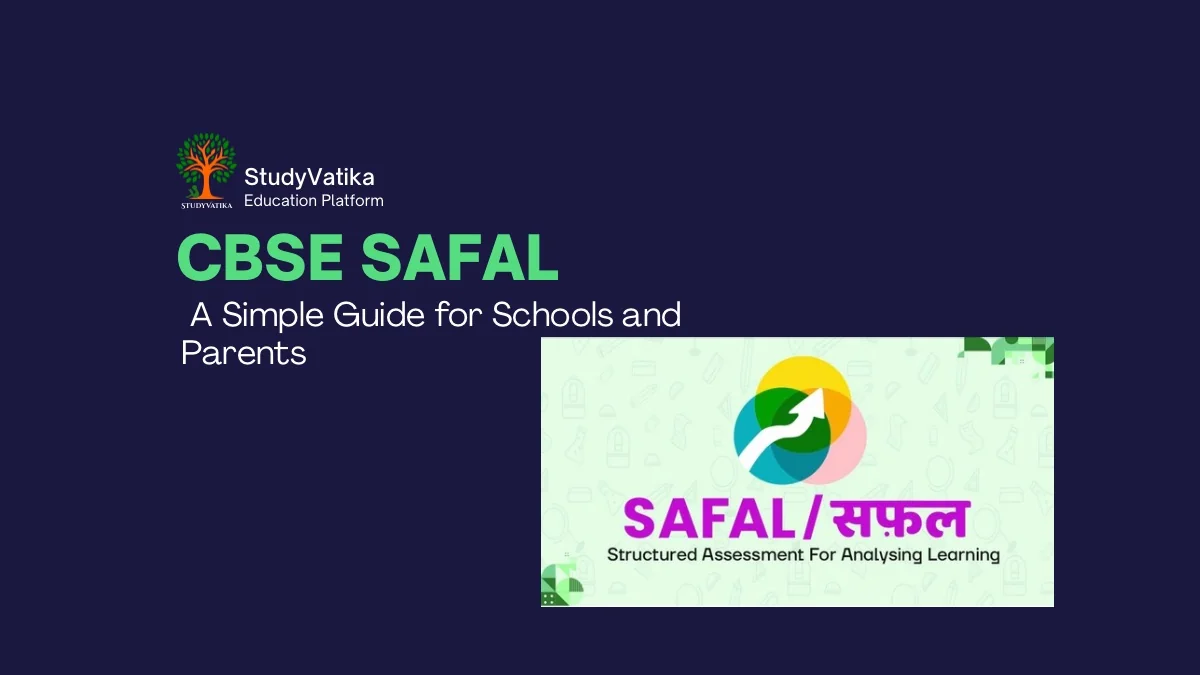SAFAL 2025 Implementation Guide: What Every School and IT Teacher Must Know

If you’re a school principal, teacher, or even a parent curious about what SAFAL means for students, this blog breaks down everything in a simple and easy-to-understand way.
🌱 What is CBSE SAFAL?
SAFAL is not just another exam. It’s a competency-based assessment system that checks whether students have truly understood their subjects — rather than just memorizing facts.
It is meant for students of Classes 5 and 8, and will gradually be expanded further. It focuses on three core areas:
- Language (English or Hindi)
- Mathematics
- EVS/Science (depending on the grade)
The tests are designed to assess how well a student can apply what they’ve learned, how they think through problems, and how deeply they understand key concepts.
🎯 Why SAFAL Matters
Here’s why the SAFAL program is a step in the right direction:
- ✅ Competency Over Cramming: Instead of testing memory, SAFAL checks whether students can think, analyze, and apply what they’ve learned.
- ✅ No Extra Pressure: The results are used for improving teaching and learning - not for passing or failing students.
- ✅ Detailed Feedback: Teachers and school leaders receive useful feedback that helps them improve how they teach and how to help students who are struggling.
🖥️ How SAFAL is Conducted
Digital First
The assessment is mainly computer-based, which means students will take the test on computers or tablets. However, schools with limited resources can opt for a one-time paper-based (OMR) test — but are encouraged to upgrade their systems in the future.
Key Requirements for Schools- Functional Computer Lab or student devices like tablets/laptops
- Good Internet Connection
- Trained Teachers in digital tools and assessment methods
- A Nodal Officer (usually an IT or senior staff member) to manage SAFAL in the school
- Regular mock tests to prepare students
🧪 How SAFAL Differs from Traditional Exams
Feature Traditional Exam SAFAL Assessment Mode Pen and paper Digital / OMR for some Focus Memorization Understanding and reasoning Subjects Syllabus-based Language, Math, EVS/Science Feedback Marks and grades Diagnostic and actionable insights
📝 SAFAL Registration: Step-by-Step
All CBSE-affiliated schools must register their students who have just moved to Classes 6 and 9 (after completing 5 and 8).
📅 When to Register?
The registration usually opens in July. For example, in 2025-26, schools could register from July 8 to July 22 (with a possible extension till July 29).
👣 How to Register?
- Visit the Portal: Go to https://cbsesafal.in/login
- Log In: Use your school’s affiliation number as the username and your LOC/OASIS portal password.
- Enter School Details: Fill in the school’s region, principal’s name, nodal officer’s contact, etc.
- Register Students: Add students from Classes 6 and 9. You can upload data manually or use an Excel sheet for bulk upload.
- Add Teacher Details: Include only teachers who taught Class 5 and 8 students the previous year — especially for Language, Math, and Science/EVS.
- Finalize and Submit: Review the data before submitting. There is usually an edit window for corrections.
There is no fee for registration.
📂 Documents and Help for Schools
- User Manual: Available on the SAFAL portal to guide schools through the registration process.
- Support Email: safal2025@cbseshiksha.in
- Helpline Numbers: +91-9968313254, +91-9968663255 (Available 9:30 AM – 5:30 PM)
- Handbook
- Circular
📌 Important Reminders
- Make sure all student and teacher data is accurate and matches CBSE records.
- Schools must prepare teachers and students well in advance through orientation and mock assessments.
- Parents should be informed about the purpose and benefits of SAFAL to avoid confusion or stress.
📚 Where to Learn More?
You can visit the official portal and CBSE Academic website for manuals, circulars, and FAQs:
- Official SAFAL Portal: https://cbsesafal.in
- CBSE Academic Website: https://cbseacademic.nic.in
🧾 Final Thoughts
The SAFAL initiative is an important step towards building a stronger, smarter, and more capable generation of students. By shifting the focus from marks to real learning, CBSE is paving the way for a better educational future.
Schools need to gear up with the right infrastructure and mindset, and parents should see this as an opportunity for their children to learn better — not just score better.
If implemented well, SAFAL can truly be a turning point in how we understand and improve learning in our classrooms.
Have questions about SAFAL?
Feel free to leave a comment below or reach out to the official CBSE helpline mentioned above. Let’s work together to make learning meaningful!
Related Topics
About the Author
Arbind Singh
Teacher, Software developer
Innovative educator and tech enthusiast dedicated to empowering students through robotics, programming, and digital tools.
Discussion (0)
You need to be signed in to post a comment.
Sign InStart the Conversation
Be the first to share your thoughts and insights on this article!
